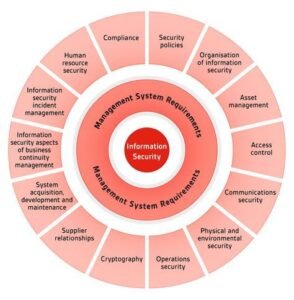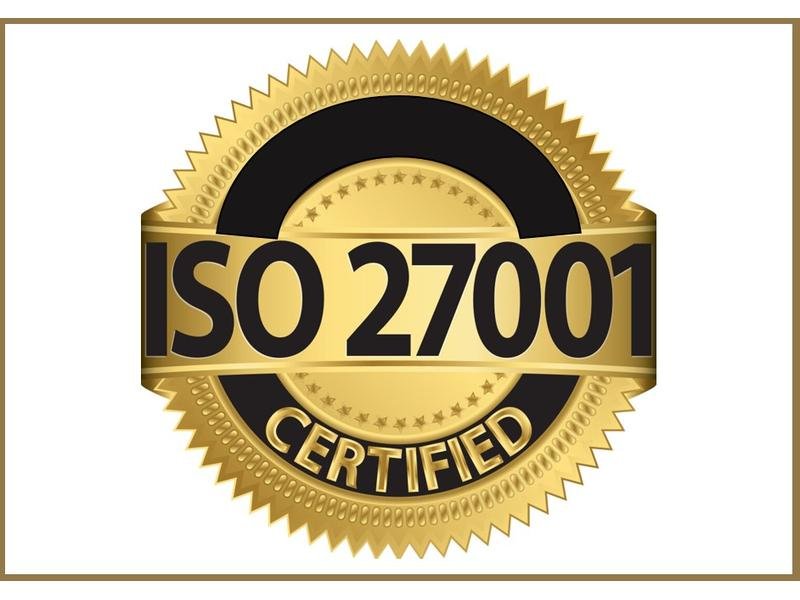In today’s digital landscape, where cybersecurity threats loom large, protecting your business’s integrity and customer data has never been more critical. With limited resources and competing priorities, many SMEs find themselves caught between a rock and a hard place regarding securing their valuable information assets. ISO 27001 certification serves as a gold standard for information security management systems, providing a framework for organizations to mitigate risks and fortify their security measures. By the end of this article, you will gain a clear understanding of ISO 27001 and how it can elevate your security framework.
Understanding ISO 27001: What is ISO 27001 and Why Does it Matter?
ISO 27001 is an international standard developed by the International Organization for Standardization (ISO). It is an internationally recognized standard that outlines the requirements for implementing an Information Security Management System (ISMS). At its core, ISO 27001 focuses on managing the confidentiality, integrity, and availability of information within an organization. By adhering to its principles, SMEs can effectively identify, assess, and manage information security risks, ensuring the protection of critical assets and maintaining the trust of stakeholders. It’s a framework that helps organizations, regardless of size, to manage and protect their information assets securely. The beauty of ISO 27001 lies in its adaptability, allowing SMEs to implement controls relevant to their specific risks.
Significance, and Core Controls
For SMEs, embracing ISO 27001 is not just about bolstering security; it’s about adopting a culture of continuous improvement. The standard specifies 114 controls categorize in 14 groups, ranging from access control to information security incident management. However, SMEs are encouraged to apply only those controls that are pertinent to their risk environment, making the standard accessible and practical for businesses with limited resources.
.

Essential Requirements
Achieving ISO 27001 certification involves developing a comprehensive ISMS, conducting risk assessments, and implementing selected controls. Documentation plays a pivotal role, including documentation of policies, procedures, and records of risk assessment and treatment decisions. Furthermore, continuous monitoring, review, and improvement of the ISMS are crucial for maintaining certification.
Strategic Approach for SMEs:
Achieving ISO 27001 certification may seem daunting for SMEs with limited resources and expertise. However, by adopting a strategic approach, SMEs can simplify the compliance process without compromising on security.
Step 1. – Start with a clear understanding of your organization’s information security objectives and risk appetite. Define the scope of your ISMS, identifying the assets and processes that require protection.
Step 2. – Conduct a comprehensive risk assessment to identify vulnerabilities and prioritize areas for improvement. This assessment will form the basis for implementing appropriate controls and security measures.
Step 3. – Develop an information security policy that aligns with ISO 27001 requirements and communicates the organization’s commitment to security to all stakeholders.
Step 4. – Regularly monitor and review the effectiveness of your ISMS, conducting internal audits and management reviews to ensure ongoing compliance and continuous improvement.
Step 5. – Meet the ISO 27001 clauses: Your ISMS should comply with the ISO 27001 clauses, which focus on six key security areas: company security policy, asset management, physical and environmental security, access control, incident management, and regulatory compliance.
Step 6. – Obtain certification: Once your ISMS meets the ISO 27001 clauses, you can apply for certification from an independent certification body.
Tangible Benefits of ISO 27001 Certification
ISO 27001 certification offers a myriad of tangible benefits for SMEs.
Firstly, it enhances security measures, enabling SMEs to proactively identify and mitigate potential threats. By implementing ISO 27001 controls and processes, SMEs can safeguard their critical data, minimizing the risk of breaches and unauthorized access.
Secondly, ISO 27001 streamlines operations by providing a standardized framework for managing information security. By aligning business processes and procedures with ISO 27001 requirements, SMEs can optimize their workflows, reduce inefficiencies, and enhance overall productivity.
Lastly, ISO 27001 certification fosters trust among clients and stakeholders. In an era of heightened data breaches and privacy concerns, demonstrating a commitment to information security through ISO 27001 certification instills confidence in customers, partners, and suppliers. It serves as a powerful marketing tool, differentiating SMEs from their competitors and opening doors to new business opportunities.
Learning from the Trenches: Real-World Examples and Testimonials
To provide practical insights, let’s explore a few real-world examples of SMEs that have successfully navigated the ISO 27001 certification journey.
Case Study 1: XYZ Technologies, a small software development company, achieved ISO 27001 certification by implementing robust security controls, conducting regular vulnerability assessments, and establishing a culture of security awareness among employees. The certification not only enhanced their reputation but also enabled them to attract new clients who valued their commitment to information security.
Case Study 2: ABC Consulting Services, an IT consultancy firm, streamlined their operations and enhanced security measures by adopting ISO 27001. By aligning their processes with ISO 27001 requirements, they were able to identify and address potential risks, ultimately improving their service delivery and client satisfaction.
The above examples showcase how SMEs can leverage ISO 27001 to bolster their security framework and reap the benefits of certification.
Did You Know? Fun Facts on ISO 27001
Here are a few intriguing fun facts about ISO 27001:
- ISO 27001 is derived from the British Standard BS 7799, which was first published in 1995.
- ISO 27001 is recognized and revered globally, making it a universal language of trust in cybersecurity. Over 36,000 organizations worldwide are ISO 27001 certified.
- ISO 27001 certification is not restricted to any specific industry or sector. It can benefit organizations across various domains, including healthcare, finance, manufacturing, and more.
- ISO 27001 compliance is an ongoing process, requiring regular reviews, audits, and updates to ensure the effectiveness of security measures.
Conclusion: Your Business, Our Priority
Embarking on the ISO 27001 certification journey can be transformative for SMEs, offering a competitive edge in today’s digital economy. While the path to compliance might seem intricate, the benefits of enhanced security, streamlined business operations, and increased trust are invaluable.
If you need help understanding ISO 27001 certification requirements, please feel free to reach out by booking a discussion session with us. Together, we can navigate the complexities of the compliance process, ensuring your business not only survives but thrives in the digital frontier. Let’s elevate your security framework and secure your legacy in the digital realm. Your commitment to excellence starts here.
Remember, in the battle for business security, the best offense is a good defense.

